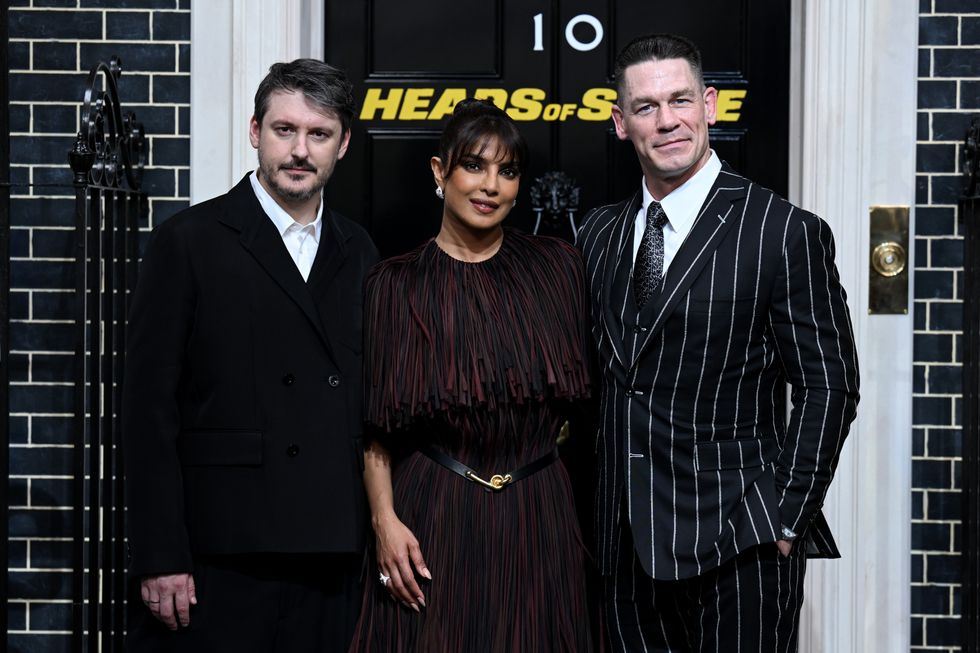Britain is not America. The diplomatic and economic consequences of US president-elect Donald Trump will present many headaches for the next year or four. But Trump’s victory will also make America feel a more distant society – politically at least. “Frankly, we need a British Trump. The question is who that individual might be,” Liz Truss said on a trip to New Delhi this week. It would seem hard to come up with a less popular message (or messenger) in Britain when this new Trump era in America promises to start with more chaos and cruelty than the last one.
I was reflecting on Britain and America in giving the Migration Museum’s annual lecture last week, exploring how the history of migration might influence the future. America has had a much clearer idea of itself as a “nation of immigrants” – symbolised by the Statue of Liberty. But that did not prevent Trump winning while pledging the biggest deportation effort in American history. Trump’s return strengthens the case for clear blue Transatlantic water - keeping a distance from America’s culture wars as we navigate our own identity challenges in a changing Britain.
Guardian columnist Rafael Behr, chairing the lecture, noted that 2016 had seen Brexit and Trump’s first term cast as twin phenomena. Too much confidence that Trumpism could not triumph here would risk being dangerously complacent. So the challenge – if we want to learn the relevant lessons from America – depends on working out what translates across the Atlantic and what does not.
Educational polarisation is reshaping western democratic politics in an age of rising diversity. The 2024 US election is the final nail in the coffin for any “demographics is destiny” notion that rising education and growing diversity would together deliver a ‘new progressive majority’ politics to make societies decisively more open and inclusive.
Instead, these social trends revived old culture clashes and added new ones – splitting the electoral coalitions of the past down new cultural and economic cleavages. The Democrats – like Britain’s Remain campaign of 2016 – showed why winning the argument with the rising tide of university graduates will still be a losing proposition unless political leaders can speak as confidently to those without degrees too.
The assumption that ethnic minorities will retain the political allegiances forged in the era of civil rights or Enoch Powell is fading across generations – yet, few have spotted a key difference between the US Republicans and the British right. Trump is appealing to Hispanic and (more occasionally) black voters who resemble his white working-class base.
Britain’s Conservatives are making progress in a very different way – advancing with upwardly mobile ethnic minority graduates, and making little connection to black and Asian Britons who feel left behind by economic and social change.
The good news, in navigating these common challenges, is that British society really is much less deeply divided than America. The issues that deeply split America - abortion, guns and whether healthcare for all is a government responsibility – often command a pretty settled British social consensus. “Stacked identities” are weaker in Britain. If I saw you wearing a face-mask in America, I can probably guess not just how you vote, but your views of abortion and climate change, too. Knowing that you wear a Remembrance poppy and support the NHS would not allow one to draw similar conclusions in Britain: we have more in common, even when our politics feels too polarised.
Paradoxically, governing a less polarised society may be more politically challenging with voters low on trust and patience. America’s hyper-polarised politics does see its red and blue tribes retain a solid 45 per cent base in every election. The British parties could not take even half of that for granted. British party politics could prove more volatile, despite our stronger shared social norms.
Sunder KatwalaSince Britain is less divided than America, we should take seriously the challenges of how to keep it that way. This November has been the month when Elon Musk lost Britain. The world’s richest man remade Twitter in his own image to become Trump’s biggest ally. Creating a new wild west that nourishes trolls, bots and racists has sent UK users flocking to a BlueSky platform which reminds many nostalgic users of what Twitter once was. Musk’s platform was again this week a hotbed of new false conspiracy theories about the Southport tragedy.
Freedom, if it means anything, must include choosing where to spend your time. The exodus from X reflects how exhausting it can be having America’s culture clashes always in your pocket and head. Will this now become a retreat into parallel online bubbles – or a chance to reshape online culture for the better? It may be one early test of what a British alternative to Trumpism might mean in practice.
(The author is the director of British Future)






 Priyanka Chopra calls herself nascent in Hollywood as 'Heads of State' streams on Prime VideoGetty Images
Priyanka Chopra calls herself nascent in Hollywood as 'Heads of State' streams on Prime VideoGetty Images  Priyanka Chopra wants to build her English film portfolio after Bollywood successGetty Images
Priyanka Chopra wants to build her English film portfolio after Bollywood successGetty Images  Ilya Naishuller, Priyanka Chopra and John Cena attend the special screening for "Head of State" Getty Images
Ilya Naishuller, Priyanka Chopra and John Cena attend the special screening for "Head of State" Getty Images








 Arijit Singh performing Instagram/
Arijit Singh performing Instagram/ Arijit Singh clicked during a performance Getty Images
Arijit Singh clicked during a performance Getty Images 


 Liam Gallagher accepts Oasis' award for 'Best Album of 30 Years' Getty Images
Liam Gallagher accepts Oasis' award for 'Best Album of 30 Years' Getty Images  Liam Gallagher plays to a sell out crowd at the Universal AmphitheatreGetty Images
Liam Gallagher plays to a sell out crowd at the Universal AmphitheatreGetty Images Liam and Noel Gallagher perform together in Cardiff for the first time since 2009 Instagram/oasis
Liam and Noel Gallagher perform together in Cardiff for the first time since 2009 Instagram/oasis